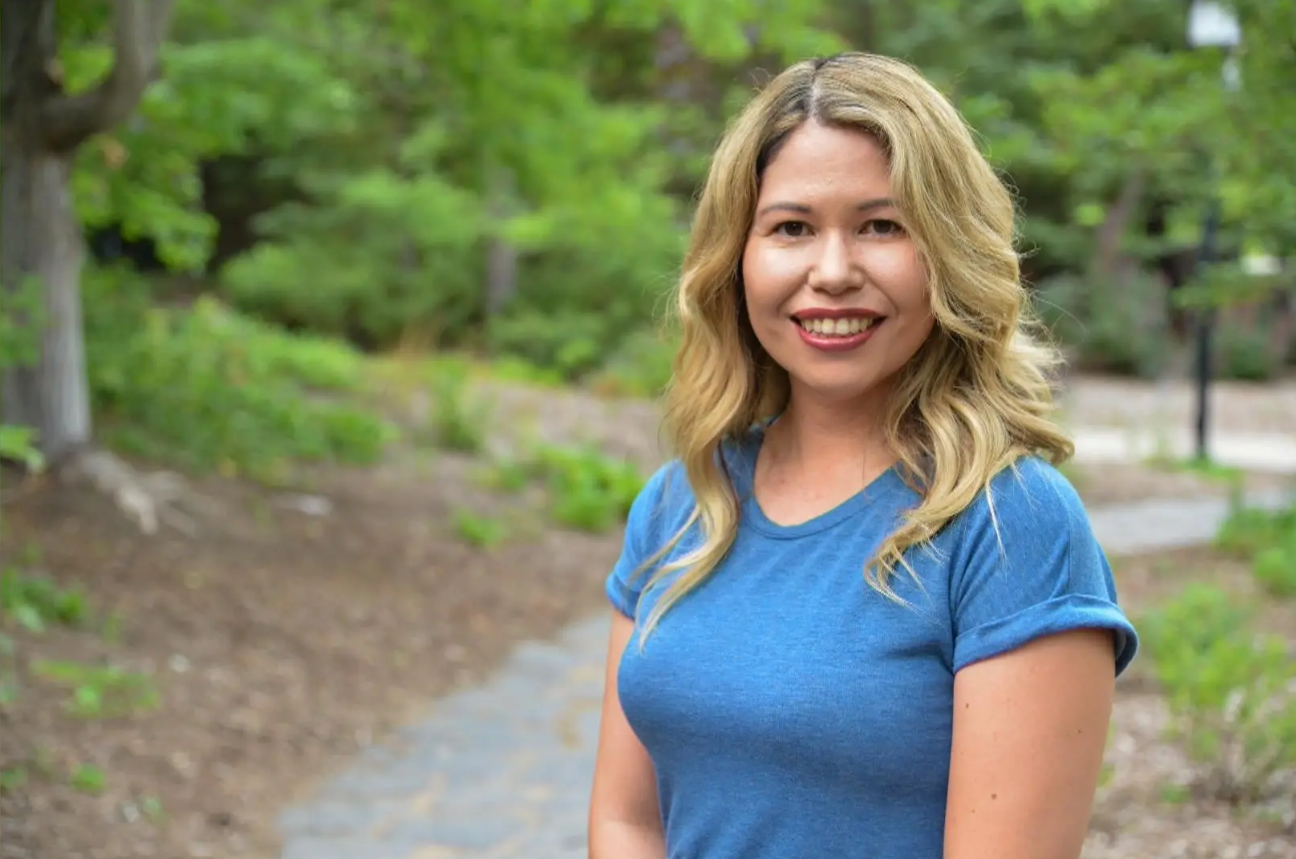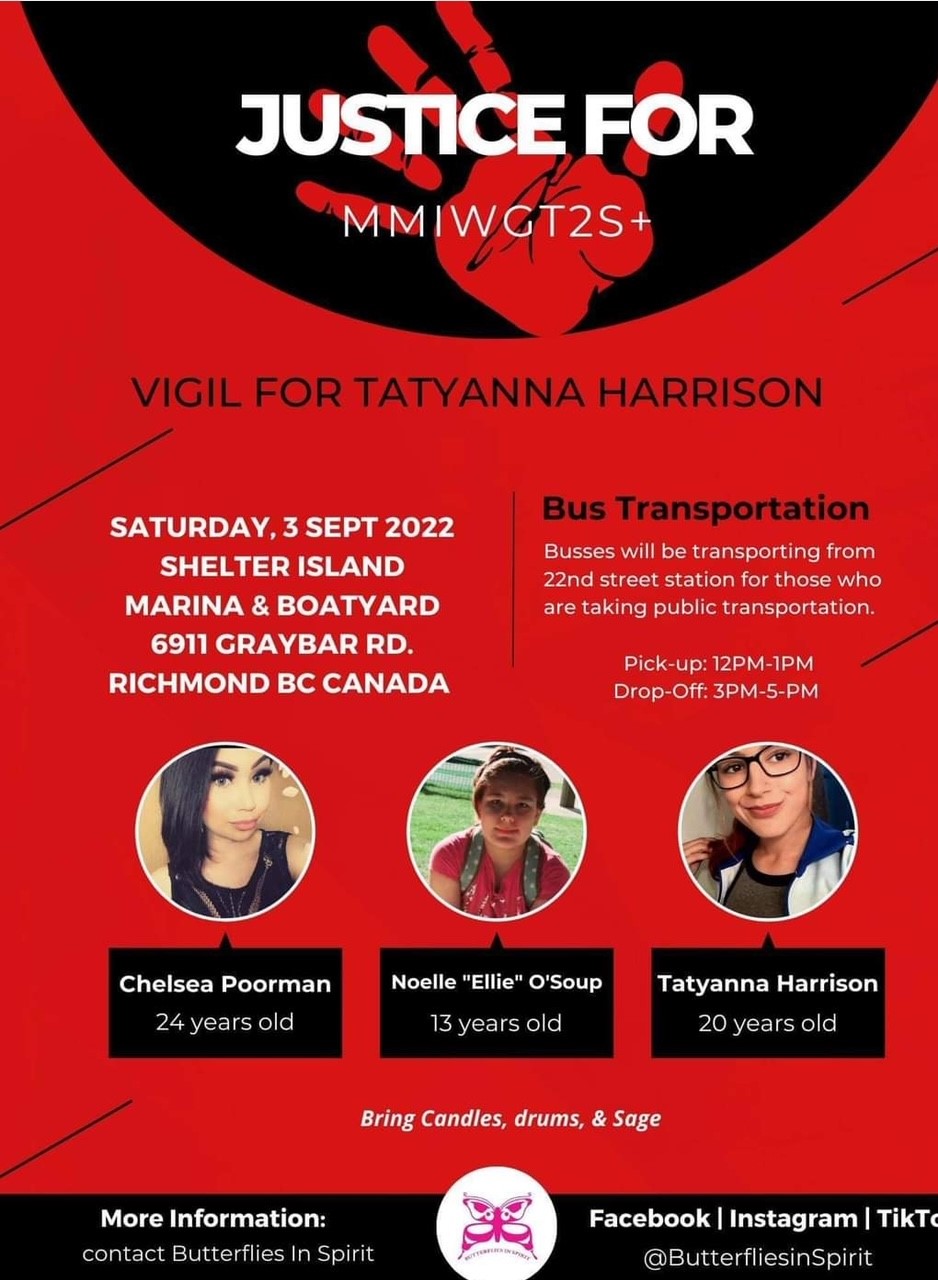Battered Women Support Services joins a large network of Indigenous organizations and leaders in extending our full support to Ms. Dawn Walker. Dawn Walker is currently jailed in Saskatoon, Saskatchewan. We are completely outraged and disappointed that Crown Counsel in Saskatchewan is opposing her release from custody and continues to hold her in jail pending her bail hearing. She is being held with no mattress, no blanket, no toothbrush, and no access to fresh air.
We have written to the Presiding Judge of the Provincial Court of Saskatchewan to request that Ms. Dawn Walker be released on her recognizance from the custody of Saskatchewan provincial corrections and that her case be diverted to restorative/transformative justice measures so that she can be at home with her family and close to her son during this traumatic time.

Who is Ms. Dawn Walker?
Ms. Dawn Walker is an Indigenous mother, member of the Okanese Cree Nation, chief of staff of the Federation of Sovereign Indigenous Nations, community leader, and published author of Nobody Cries at Bingo, Rose’s Run, and Glass Beads. Her most recent work, The Prairie Chicken Dance Tour, is shortlisted for Canada’s prominent 2022 Stephen Leacock Memorial Medal for Humour.
Dawn Walker is a survivor of domestic violence who was completely failed by the system as an Indigenous woman and mother. Dawn had reported multiple incidents of domestic violence to the Saskatoon Police Services and the RCMP, who failed to act on the patterns and escalation of abuse she reported. According to the Saskatoon Police Service, they claim they “thoroughly investigated the matter” and decided not to lay charges against Dawn’s abuser. Dawn and her seven-year-old son then went missing in late July 2022, prompting an extensive missing persons to search in Canada. She and her son were later found in Oregon. Dawn was returned to Canada this week from Oregon, where she had been briefly held on U.S charges of aggravated identity theft and a misdemeanor identity theft. She is now also facing charges in Canada of parental abduction in contravention of a custody order and public mischief. Dawn Walker is currently being held in provincial custody pending a bail hearing and resolution of these criminal charges.
What is happening to Dawn Walker happens to Indigenous survivors across these lands. Indigenous women, girls, and two-spirit people not only experience higher rates of gendered violence but they are also dismissed and under-protected – and in many cases, actively criminalized – when reporting or fleeing violence. At a recent press conference in support of Dawn, Vice Chief Heather Bear of the Federation of Sovereign Indigenous Nations stated, “The FSIN is here today to stand in solidarity with not only Dawn but to any other vulnerable woman out there that is experiencing what Dawn has gone through and what she is going through. We call for reform for our broken Colonial legal system that fails to keep our Indigenous women and children safe as well as our victims and survivors of domestic violence.”
Read BWSS Circle of Support and Legal Defense letter for Dawn Walker here.
Dawn’s family and community have launched a fundraiser to support her legal fees, with surplus funds being donated to MMIWG2S+ issues.
Supporting, not Criminalizing, Indigenous Survivors of Violence
We believe that Ms. Dawn Walker’s “disappearance” was not of her own volition and was not an intentional act of mischief. We understand that she was acting in the context of having little to no choices; she was fleeing for her safety, leaving behind a successful career and life in order to protect herself and her son. It is shameful that as an Indigenous survivor of gender-based violence and trauma, Dawn is now being subjected to further punitive and unnecessary measures in the colonial legal system. While the number of non-Indigenous women behind bars trends downwards, the number of Indigenous women who are incarcerated is skyrocketing: Indigenous women make up less than 5 percent of the total population, but over 50 percent of the prison population across Canada. This is a time when Dawn Walker and her young son need the assistance and support of friends and family to help them heal, but, instead, the system is punishing and criminalizing Dawn for trying to keep her and her son safe.
As an organization that works to end gender-based violence, BWSS regularly works with survivors who, like Dawn, have experienced systemic failures in police response to complaints of domestic violence, as well as the failure of the provincial child protection system and the family law legal systems to keep mothers and their children safe. In our recently released report, The Road to Safety: Indigenous Survivors in BC Speak Out against Intimate Partner Violence during the COVID-19 Pandemic, Indigenous survivors in BC widely reported that two of the main barriers for Indigenous women escaping intimate partner violence and reporting abuse are fear of mistreatment by police and fear of child services involvement.
We know that this is also true for Indigenous survivors in the Prairies. The province of Saskatchewan has the worst intimate partner violence rate of any province and more than double the national rate, with at least 37 intimate partner homicides in the province from January 2015 to June 2020. CBC reports that at least 17 of those killed were Indigenous. Like Dawn who was fleeing for her safety, many of those who were killed were victims of abuse and coercive control, and clear warning signs were ignored by authorities. Across Canada, six in ten Indigenous women report experiencing some form of intimate partner violence in their lifetime, compared to four in ten non-Indigenous women. And then, like Dawn, when they try to report domestic violence, they are dismissed by police. A recent study “Sexual Assault: Indigenous Women’s Experiences of Not Being Believed by the Police” details how Indigenous women described that when reporting or attempting to report violence and assault to police, their experience with police “was negative, not what they expected, and for many, it was retraumatizing. Participants self-reported that they felt dismissed by the police and that police believed their sexual assault was either untrue or unimportant.”
Intergenerational trauma and systemic colonial violence are the enduring context for Indigenous women facing violence. “Reclaiming Power and Place: The Final Report of the National Inquiry into Missing and Murdered Indigenous Women and Girls” makes clear that violence against First Nations, Inuit, and Métis women, girls, two spirit, and gender diverse people in Canada stems from targeted colonial gendered violence. As the Final Report states, “Colonial violence, as well as racism, sexism, homophobia, and transphobia against Indigenous women, girls, and 2SLGBTQQIA people, has become embedded in everyday life – whether this is through interpersonal forms of violence, through institutions like the health care system and the justice system, or in the laws, policies, and structures of Canadian society. The result has been that many Indigenous people have grown up normalized to violence, while Canadian society shows an appalling apathy to addressing the issue. The National Inquiry into Missing and Murdered Indigenous Women and Girls find that this amounts to genocide.”
We are part of and echo national and provincial advocacy to ensure that immediate action is taken to advance the immediate implementation of all the National Inquiry into Murdered and Missing Indigenous Women and Girls’ 231 Calls for Justice in their entirety.
Local Actions to Support MMIWG2S Justice
In the Lower Mainland and across BC, Indigenous women, girls, and two spirit people continue to face an alarming increase in gender-based violence. In our community-based research on The Road to Safety: Indigenous Survivors in BC Speak Out against Intimate Partner Violence during the COVID-19 Pandemic, we found that pressures placed by the pandemic increased the frequency and severity of intimate partner violence experienced by Indigenous women and gender-diverse people. 85 percent of survey respondents reported an onset of intimate partner violence during the pandemic, and 77 percent of survey respondents reported that they experienced an increase in intimate partner violence during the pandemic.
In just the past few months, Tatyanna Harrison, Alysia Strongarm, Noelle ‘Elli’ O’Soup, Keara Joe, Carmelita Abraham, Kwem Manuel-Gottfriedson, and Chelsea Poorman have all gone missing or died under suspicious circumstances in the province of B.C. As stated by Summer Rain, BWSS’s Manager of Direct Services & Indigenous Women’s Program, “Indigenous women and girls are being hunted down like prey because perpetrators know they can get away with sexist, colonial violence against us. Police and child services agencies perpetuate the violence, and there is glacial inaction by all levels of government to the Calls for Justice by the National MMIWG2S Inquiry. This is an urgent state of crisis, and we will continue to take action until the violence ends.”
On Saturday, September 3, we invite all our supporters to join our colleague’s Butterflies in Spirit in Richmond for a Vigil for Tatyanna Harrison, Chelsea Poorman, and Noelle ‘Ellie” O’Soup.





Wow this is an incredible piece
Am the co chair of Iskwewuk a group in Saskatoon that is mentioned in the letter to presiding judge